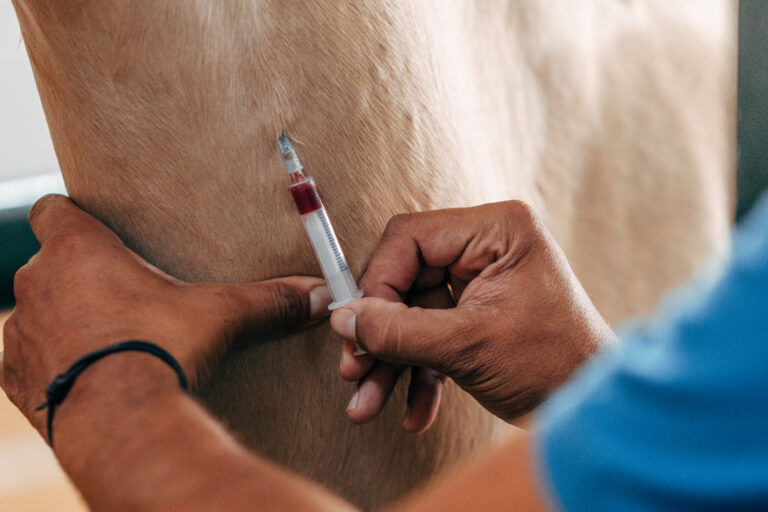An anonymous racehorse breeder has donated $20 million to Colorado State University to build a state-of-the-art regenerative medicine research facility, fulfilling a $65 million matching challenge from lead donors and fellow horse aficionados John and Leslie Malone.
In December 2014, the Malones pledged a record-breaking $42.5 million for the planned facility, prompted by their interest in stem-cell therapy and its effectiveness in treating equine joint problems. The Malones raise world-class dressage horses and Thoroughbred racehorses.
The generous donations allow construction of the CSU Institute for Biologic Translational Therapies, which promises to tap the body’s healing powers for innovative treatments that improve animal and human health. Groundbreaking will occur later this year; an exact date has not been set.
“We are deeply grateful for another tremendous gift to help establish the Institute for Biologic Translational Therapies,” CSU President Tony Frank said. “This support, combined with the transformational gift from John and Leslie Malone, will advance Colorado State’s work in a new era of veterinary and translational medicine.”
On Feb. 13, CSU publicly announced its first $1 billion campaign to generate philanthropic support for teaching, research, outreach, and veterinary clinical services. The university is more than halfway to fulfilling that lofty goal with help from the sizeable gifts for regenerative research.
The Institute for Biologic Translational Therapies will develop next-generation remedies based on living cells and their products. These include patient-derived stem cells to treat musculoskeletal disease and other ailments.
Faculty with the Orthopaedic Research Center, in the College of Veterinary Medicine and Biomedical Sciences, developed the vision for the institute as part of their focus on equine musculoskeletal problems; other CSU faculty with interests in regenerative medicine then became involved.
Colorado State veterinarians are experts at investigating medical treatments for animal patients, then providing knowledge gained to boost human medical advancements; the progression is known as translational medicine and is successful because of similarities in animal and human physiology and disease.
The leader in planning the new research institute has been Dr. Wayne McIlwraith, a University Distinguished Professor, Barbara Cox Anthony University Chair in Orthopaedic Research, and international pioneer of arthroscopic surgery and joint disease research in the horse. McIlwraith is founding director of CSU’s Orthopaedic Research Center and has worked with other faculty in the center to pursue regenerative treatments to augment surgery and to hasten recovery from injury and joint disease; these include stem-cell and gene therapy, specialized tissue replacement, and use of novel proteins.
McIlwraith and his veterinary colleagues have treated joint problems in horses owned by the Malones and by the anonymous donor.
“We are very thankful for these supporters, who have seen the potential for regenerative therapies in the successful treatment of equine athletes,” McIlwraith said. “Our new Institute for Biologic Translational Therapies will propel our work by investigating regenerative therapies for a wide range of disease.
“This institute will be distinguished for working from laboratory inception to commercialization under one roof,” he said. “We will work from the outset of each project with the goal of translating therapeutic knowledge from animals to people.”
The alliance between veterinarians and physicians is familiar to McIlwraith and colleagues, who have teamed with medical experts including those at the Steadman Clinic, the preeminent orthopaedic and sports-injury center in Vail. They also have collaborated on research funded by the National Institutes of Health at Massachusetts Institute of Technology, the University of Pittsburgh and Indiana University. More recently, CSU orthopaedic faculty have established new partnerships with Rush University Medical Center and Stanford University.
The Malones’ earlier gift of $42.5 million provides $32.5 million for construction of a building featuring laboratories, specialized surgical suites, and conference space for veterinarians and physicians, as well as $10 million for institute operations over the first five years.
The lead gift required $32.5 million in matching donations, amounting to $65 million for building construction. The challenge has been fulfilled in just over a year with the $20 million gift from the anonymous donor and $12.5 million from other donors and the university.








